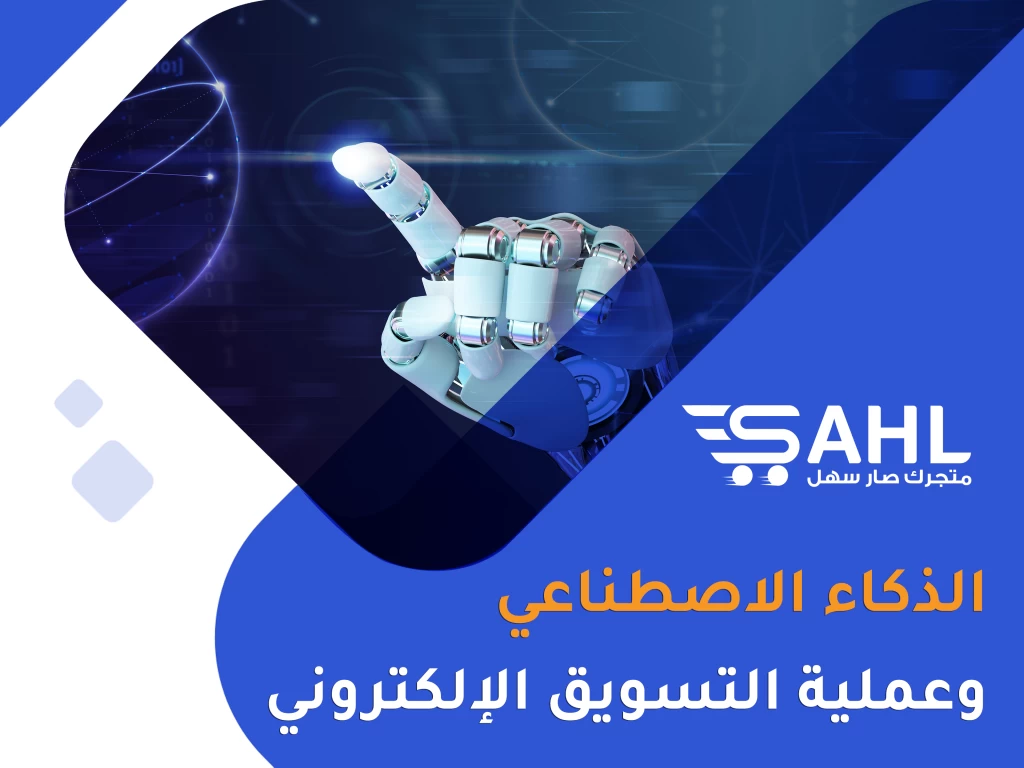Free support 24/7
Free support 24/7

Artificial intelligence is a high-tech field that aims to develop systems capable of carrying out tasks similar to human intelligence. Since its inception, artificial intelligence has had a significant impact on various fields, including marketing. Artificial intelligence is a powerful tool that can revolutionize how marketing strategies are implemented and increase the effectiveness of marketing campaigns. In this article, we will review the benefits of artificial intelligence in the marketing process.
Data Analysis and Precision Targeting: AI can quickly and accurately analyze huge amounts of data to understand consumer behavior and preferences. Marketers can use this data to better define their target audience, and thus allocate efforts and resources more effectively to meet customer needs.
Improve customer experience: AI can deliver personalized and improved customer experiences. By analyzing customer behavior and history of interactions with products or services, intelligent systems can provide personalized and accurate recommendations to each customer, increasing customer satisfaction and loyalty.
Improve marketing strategies: AI can be used to analyze the performance of existing marketing campaigns and suggest improvements. Intelligent systems can monitor customer interaction with advertisements and different communication channels, and accordingly, adjust strategies to increase conversion rate and return on investment.
Facilitate personal interaction: AI can be used to facilitate personalized interactions with customers. For example, intelligent chatbots can provide immediate and personalized responses to customer inquiries around the clock, enhancing their experience.
Predictive Marketing: Artificial intelligence can use historical data and trends to predict future market trends. This enables marketers to plan innovative strategies early on and prepare for potential changes.
Improved content marketing: AI can analyze what audiences like and prefer, so content production efforts can be directed more precisely to increase engagement with it.
Personalize offers and discounts: AI can present personalized offers and discounts to each customer based on their purchase history and interests. This enhances the likelihood of increasing sales and stimulating purchases.
Benefit from artificial intelligence in the marketing process
1. Data analysis and deep understanding of the target audience
Artificial intelligence has the ability to analyze data more accurately than humans and at tremendous speed. It can track details of consumers' online behavior, such as searching for products and interacting with ads, to generate valuable insights. This analysis can help marketers understand audience needs and direct efforts towards providing relevant content and offers.
2. Chat bots and customer service
AI-powered chatbots deliver an interactive and responsive experience to customers. It can answer inquiries and provide information about products and services around the clock. This reduces waiting time and enhances customer satisfaction.
3. Predictive Marketing and Strategic Decision Making
By analyzing historical data and using machine learning techniques, AI can provide accurate predictions about future market trends. This helps marketers make informed strategic decisions based on data-driven forecasts.
4. Improving social media marketing strategies
Artificial intelligence can automatically monitor discussions and interactions on social media. This can help understand customers' feelings about your products or services, enabling you to identify areas of strength and weakness and improve engagement strategies.
5. Customize Offers and Content
The AI can customize offers and content for each customer based on their interests and interaction history. This increases the likelihood of attracting customers and increasing conversion rates.
6. Analyze images and visual content
Artificial intelligence can analyze photos and videos to extract useful information. It can identify specific products in images and analyze audience interaction with visual media content, and this contributes to improving visual content strategies.
7. Provide virtual experiences and virtual reality
Artificial intelligence can be used to deliver virtual and virtual reality experiences that allow customers to try products before they buy. This increases customer convenience and reduces the risk of electronic purchases.
8. Analyze customer interactions and provide customized recommendations
AI can analyze customer interactions with content and products and use this information to make personalized recommendations. For example, if a customer purchases a particular product, the AI can make suggestions for related products that they might be interested in.
9. Improve performance analysis and measure success
Thanks to artificial intelligence, marketing campaign performance metrics can be improved. It can track important parameters such as conversion rate and transition rate between stages of the purchasing process, thus helping to identify success and improve vulnerability.
10. Provide an enhanced personal experience
AI can deliver a personalized experience to customers by analyzing purchase history and past interactions. It can create an accurate picture of each customer and provide personalized content and offers tailored to their interests and needs.
11. Interact with customers through multiple channels
With the proliferation of multiple means of communication, AI can monitor customer interactions across various channels, including email, social media, and websites. This allows marketers to ensure a consistent and integrated experience across all channels.
12. Analyzing competitors' movements
AI can monitor competitors' movements and analyze their strategies. This enables marketers to identify their strengths and weaknesses and develop marketing strategies that give them a competitive advantage.
13. Innovation and development of new products
Through the analysis of M
With customer knowledge and needs, AI can help companies develop new products that meet public expectations. This reduces the risk of product failure and increases their chances of success.
14. Automated Marketing Infrastructure
Artificial intelligence can support automated marketing infrastructure, where intelligent systems can perform repetitive tasks such as sending welcome messages, follow-up deliveries, and activation actions based on customer behavior.
15. Continuous improvement and adaptation
AI can learn from data and improve systems performance over time. This allows marketers to continuously improve their strategies and adapt to changes in customer and market behavior.
Shifting towards the future of marketing using artificial intelligence
As AI technologies continue to evolve, a major shift in marketing can be expected. Artificial intelligence becomes a key factor in shaping marketing strategies and achieving success in a competitive market. Here are some projected trends for the future of AI marketing:
1. Experiential marketing and virtual reality
Through virtual and augmented reality applications, customers can actually experience products and services before making a purchase. Artificial intelligence will improve these experiences through enhanced technology that responds to customer interests and enhances customer engagement.
2. Predictive Marketing and Advanced Analytics
Artificial intelligence will continue to provide accurate analytics that help marketers predict future trends. Advanced analytics tools will be able to analyze big data and global trends to provide accurate recommendations and best guidance for marketing strategies.
3. Voice interaction and artificial intelligence
Voice interaction technologies will evolve thanks to artificial intelligence to enable communication with customers through voice commands. Machine learning models will be developed that understand and respond accurately to voice commands, enabling improved customer experience and additional convenience.
4. Social marketing and personal interactions
Social media will advance to a new level with the use of artificial intelligence. Marketers will be able to analyze the millions of social media posts and comments, and use this information to formulate marketing strategies that better respond to audience interactions.
5. The optimal time context for marketing
Using artificial intelligence, it will be possible to determine the optimal time to publish ads and content based on the audience's active times and interests. This will allow for better engagement and conversion rates.
6. Security and privacy
With the increasing use of AI in marketing, security and privacy will become key. It will require companies and marketers to ensure data protection and strictly enforce privacy policies.
Challenges and future issues
Despite the benefits of AI in the marketing process, it also has challenges and issues that need to be addressed carefully. Some of these challenges include:
1. Anxiety about job loss
With the increasing adoption of technology and artificial intelligence, it can raise concern about job losses. Companies must apply artificial intelligence in a balanced way to enhance the workforce and direct it towards more complex and valuable tasks.
2. Data quality
The success of artificial intelligence depends on the quality of the data it relies on. Businesses need to ensure accurate and reliable data is available to get valid analytics and tangible results.
3. Ethics and privacy
The use of artificial intelligence raises ethical issues around the collection and use of personal data. Companies must adhere to strict privacy and security standards, and ensure that customer information is protected.
4. Customer approval
There can be a challenge in accepting customers to interact with AI systems, particularly in relation to customer service. Efforts should be directed at simplifying and demonstrating how customers can benefit from these technologies.
5. Training and development
To get the most out of AI, marketers and business teams need continuous training and development. They must be equipped with the skills to understand and use these technologies effectively.
in conclusion
The use of artificial intelligence in the marketing process is not just a technical innovation, but rather a strategic development that can achieve a paradigm shift in the industry. AI can improve customer experience, increase the effectiveness of marketing campaigns, and better support strategic decision-making. With ethical challenges and issues in mind, companies can build AI-based strategies that contribute to their success and survival in a competitive and ever-changing market.

صفحة المنتج هي أهم نقطة قرار داخل المتجر الإلكتروني يا إنها تقنع العميل يكمل الشراء يا إنها تضيّعه في تفاصيل مالها داعي

دخول السوق الأوروبي صار أسهل من قبل بفضل تطور أدوات الترجمة والتقنيات اللوجستية الذكية
You can create your store easily